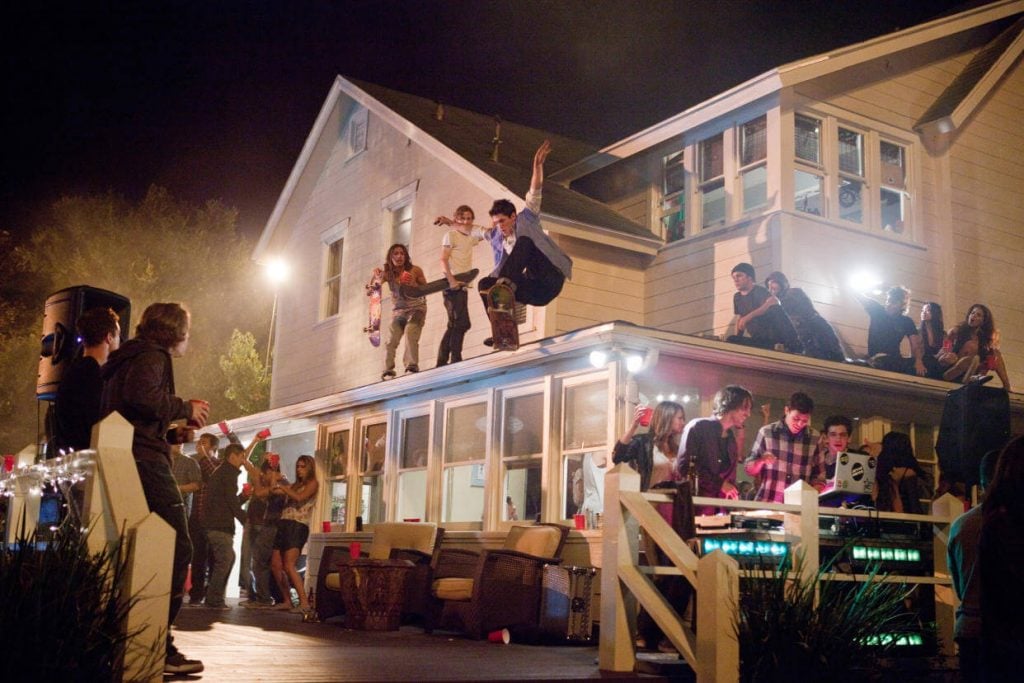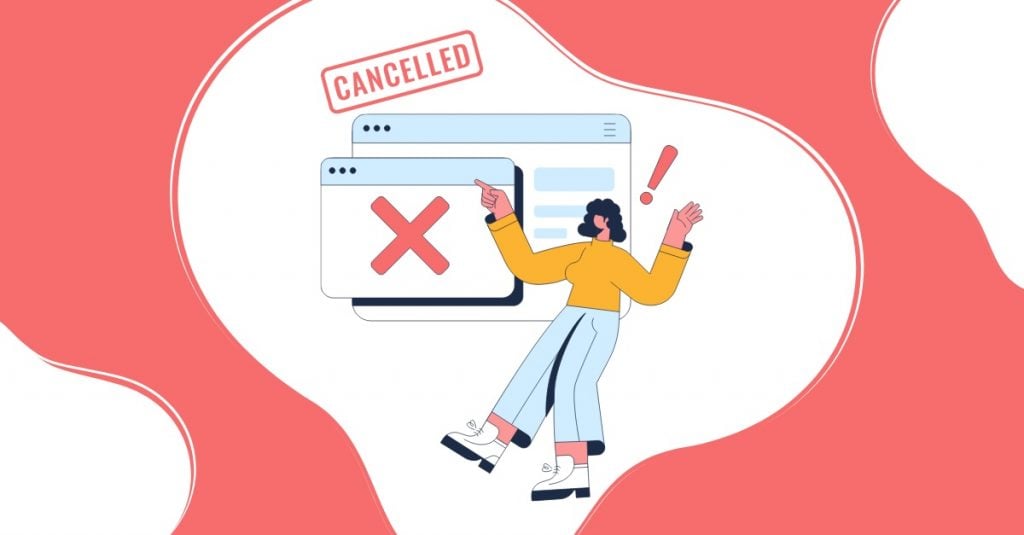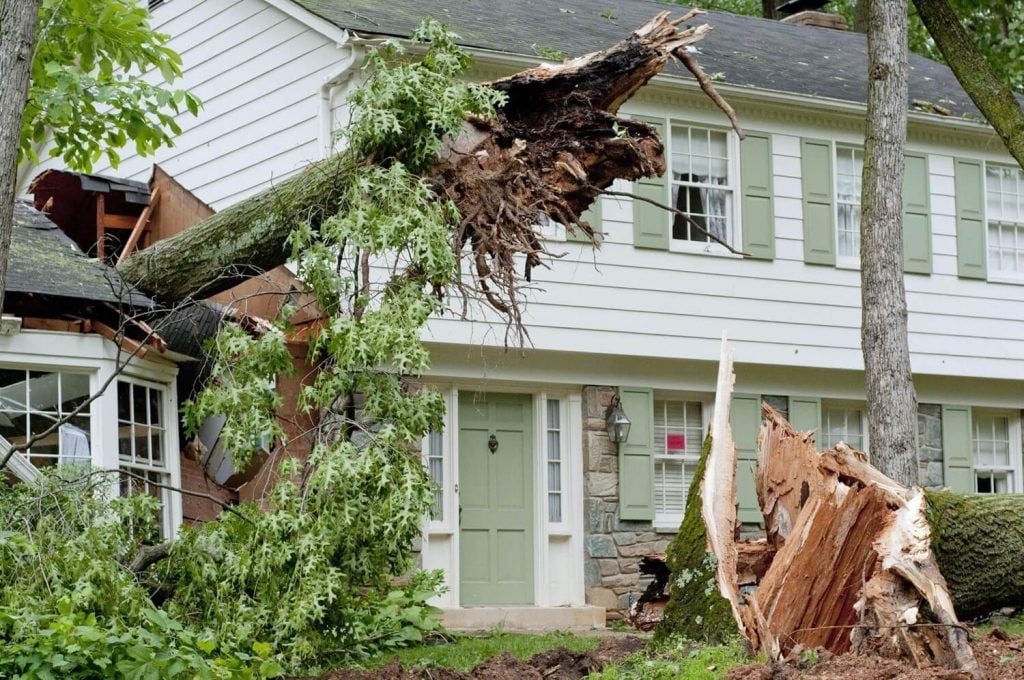On social media, we often come across guests sharing their Airbnb horror stories. What was meant to be a relaxing vacation can turn into a complete Airbnb nightmare. Similarly, hosts can face Airbnb nightmares and frightening situations that lead to significant financial losses and emotional distress.
In this article, we will explore some common scenarios and seemingly unbelievable stories. Our goal is not to scare you, but to provide advice that can help you prepare for the unexpected.
If you’re looking for an easy way to streamline your Airbnb operations, consider using Hostex — it automates over 70% of daily short-term rental tasks for just $4.9/month, giving you more time to focus on what matters most.

Airbnb Nightmares
We hope that after reading these stories, you can breathe a sigh of relief, knowing that such things are unlikely to happen to you.
Remember, if you want to minimize risks, developing some strategies in advance can save you a lot of trouble.
1. Crazy Parties

Airbnb Nightmare Scenario
For Airbnb hosts, the most terrifying scenario is having a well-decorated property turned into a “party house” by guests. The Orinda shooting on Halloween 2019 is a prime example.
- Devastating Property Damage: Some hosts have discovered that guests used carpets as ashtrays, burned walls with cigarettes, smashed furniture, and even soaked floors in urine. Cleaning costs can reach tens of thousands of dollars.
- Legal and Community Risks: A Chinese host in New York faced police investigation after guests hosted a paid party (even selling alcohol and marijuana). This led to criminals using the opportunity to scout nearby neighborhoods, resulting in long-term neighborhood disputes.
- Platform Penalties: Airbnb clearly prohibits gatherings of more than 16 people. If hosts allow parties that lead to complaints, their listings may be forcibly removed.
Prevention Tactics
- Set Minimum Stay Requirements: Set weekend or holiday bookings to a minimum of two nights (considering Friday and Saturday). This significantly reduces the likelihood of “one-night parties.”
- Watch for Anomalous Bookings: Pay attention to local one-night bookings, especially if the guest count is too low (like two people renting an entire villa) or too high (near the maximum). It’s advisable to screen guests and check reviews from other hosts.
- Proactive Communication Screening: During booking, ask about the “purpose of stay” (such as family vacation or business trip). Combine this with the guest’s historical reviews and verified ID information to assess risk.
- Install Legal Monitoring Equipment: Deploy cameras in outdoor and entry areas (to be noted on the listing). This deters potential violators and helps retain evidence.
- Real-Time Monitoring and Intervention: Use sound level monitors or collaborate with neighbors. If unusual noise or crowding is detected, immediately contact the guests to warn them. If necessary, call the police and contact Airbnb for emergency cancellation.
- Utilize Platform Protection Mechanisms: If damage occurs, promptly upload photo or video evidence to Airbnb’s resolution center to claim up to $3 million under the AirCover Program.
2. Drunk Guests

Airbnb Nightmare Scenario
The scenes in the movie “The Hangover” are not exaggerated. The damage caused by intoxicated guests often exceeds what hosts can imagine. An Airbnb in Burlington, Canada, suffered $50,000 in losses when drunk renters removed security cameras, smashed glass door frames, and damaged furniture.
- Property Damage: Guests drinking heavily can lead to overflowing trash, ripped sofas, damaged furniture, and walls stained with vomit and bodily fluids.
- Violence Risk: Drunk individuals often exhibit violent behavior, posing significant risks to themselves and others.
- Threatening Community Safety: One host faced neighborhood conflicts due to noisy, drunken guests late at night. When guests threw bottles at neighbors, police intervened, leading to community complaints against the host for “failure to manage.”
Prevention Tactics
- Clarify Alcohol Use Policy: Clearly state in the listing and house rules that “drinking is prohibited indoors” or “moderate drinking only.” Emphasize that violations will result in immediate eviction. For instance, you might declare, “If intoxication or excessive alcohol is discovered, the host reserves the right to refuse entry.”
- Decisively Cancel Dangerous Bookings: According to Airbnb policy, if guests “threaten safety or damage property,” hosts can contact the platform for emergency cancellation. Therefore, if you notice guests arriving intoxicated or carrying hard liquor, you can ask them to leave on the spot and upload evidence through the platform for full compensation.
- Prioritize Safety by Calling the Police: If intoxicated guests engage in destructive or violent behavior (such as breaking items or threatening safety), call the police immediately and evacuate the scene.
3. Double Bookings
Airbnb Nightmare Scenario
Double bookings are one of the most destructive systemic errors in hosting. On New Year’s Eve 2024, French traveler Camille found that another group had already occupied the Airbnb she had booked four months in advance upon arrival. This left her party of five searching for accommodation in the cold, ultimately taking hours to find a replacement.
- Double Loss Compensation: If both groups have completed their payments, the host must fully refund the fees and cover the price difference. Additionally, they may face fines from the platform.
- Trust and Reputation Collapse: If a host fails to resolve the issue properly, their listing may be removed from the platform. Furthermore, negative reviews from guests can raise doubts among future guests.
- Legal and Community Risks: If double bookings involve illegal short-term rentals (as seen in London, violating local 90-day rental laws), the host may face government penalties or even criminal charges.
Prevention Tactics
- Prioritize Current Guests: If a double booking occurs, immediately contact the later group to negotiate a cancellation. Offer them vouchers or assist in finding alternative accommodations.
- Enable Calendar Syncing: Use the iCal calendar syncing feature provided by platforms like Airbnb and Booking.com. This requires exporting links from other platforms and importing them to ensure synchronized availability across platforms.
- Deploy Property Management Software: Utilize Airbnb tools like Hostex to centrally manage bookings and calendars from multiple channels, such as Airbnb, Booking.com, and Vrbo. This helps avoid human errors and eliminates double bookings.

4. Suspicious Guests
Airbnb Nightmare Scenario
When a guest’s identity significantly mismatches their booking information, it often signals a more dangerous scam. Alarmingly, these types of fraud are frequently linked to criminal activities:
- Threats to Property and Safety: A host in Chicago discovered that a guest who booked under a false identity was actually a wanted criminal. His accomplices hid drugs in the property and attempted to alter its structure.
- Platform Rule Loopholes: Fraudsters exploit the “third-party booking” policy (which allows bookings on behalf of others) by using forged identities to gain entry.
- Transnational Crime Risks: Australian police uncovered a case where a guest booked a luxury home using a fake passport, which was actually used for money laundering and illegal currency exchange.
Prevention Tactics
- Mandatory ID Verification: Clearly state in the booking confirmation that “guests must present identification (passport or driver’s license) that matches their Airbnb account upon check-in.”
- Be Wary of Suspicious Guests: Pay special attention to accounts with no reviews, no verified identity, and incomplete personal profiles.
- Utilize Platform Tools: Activate Hostex’s “Risk Management” feature (provided by Truvi) to uncover potential risks associated with guests and receive compensation in case of incidents.
- On-Site Interception and Reporting: If you find that a guest’s identity does not match their booking, call the police immediately and contact the Airbnb team to cancel the reservation.
5. Last-Minute Cancellations

Airbnb Nightmare Scenario
Last-minute cancellations during peak season often trap hosts in a double bind of “lost income” and “time crisis.”
A representative case is that of Kevin Li, a host in Hawaii. He had a beachfront villa priced at $800 per night booked solidly three months in advance (16 nights from December 20 to January 5). However, he received a cancellation notice just one day before check-in, resulting in a direct loss of $12,800.
Prevention Tactics
- Set Reasonable Cancellation Policies: Implement differentiated policies for different seasons; use a “moderate policy” in the off-season to attract bookings and switch to a “strict policy” during peak season.
- Limit Maximum Stay Duration: For high-priced peak periods, set a maximum consecutive stay to prevent long-term bookings from being canceled, which could leave multiple days vacant.
- List on Multiple Platforms: Publish your listing on platforms like Booking.com and Vrbo. This way, if someone does cancel last-minute, you have a better chance of securing new guests for your property.
6. Theft and Robbery

Airbnb Nightmare Scenario
After years of managing an Airbnb, you may find that incidents of theft are almost inevitable. Guests might leave with more than what you provided, such as dishes or hairdryers.
However, some hosts suffer much greater losses. In 2023, Isabella, a host in Paris, welcomed a couple who claimed to be “art collectors.” After their departure, she discovered that valuable items, including a gilded mirror and a Persian rug worth €280,000, were missing. Surveillance footage showed the couple using professional tools to dismantle fixtures and disguise the items as “luggage.”
Prevention Tactics
- Remove High-Value Items: The best approach is not to leave valuable items in your property. If you must keep them, consider using high-quality replicas instead of originals.
- Deploy IoT Trackers: Embed tracking devices like AirTags in valuable items. These can trigger alerts when they leave a designated area and help you quickly locate and recover stolen items.
- Purchase Specialized Insurance: If you have expensive furniture and decor that cannot be removed, consider insurance that covers “tenant theft.”
- Report Immediately: If you notice items missing, call the police right away and provide them with evidence such as item descriptions, GPS tracking, and surveillance footage.
7. Malicious Complaints

Airbnb Nightmare Scenario
Malicious complainants often exploit the platform’s “customer-friendly” policies to execute targeted extortion. In 2023, Tokyo host Miwa Sato experienced a textbook scam. After check-out, two guests sent dozens of photos claiming “cockroaches infested the bathroom” and demanded a full refund, threatening to report her to Airbnb. Upon reviewing indoor surveillance, Miwa discovered that the guests had brought dead cockroaches to scatter on the countertop for staging. They even used Photoshop to alter the timestamps on photos, making March images appear as if they were taken during their April stay.
Prevention Tactics
- Mandatory Immediate Reporting Rule: Include in your house rules that “all issues must be reported within 2 hours of check-in; otherwise, the property condition is deemed acceptable.” Emphasize this clause in the booking confirmation email.
- Establish a “Hygiene Trust Chain”: Invite a third-party certification agency (like SGS) to issue quarterly sanitation rating certificates. Display these prominently on your listing page.
- Platform Appeals: Submit evidence and assessment reports to Airbnb (such as image metadata analysis proving forgery) to request the restoration of your listing and the banning of the guest’s account.
8. Refusal to Leave
Airbnb Nightmare Scenario
Cory, a host in Palm Springs, California, rented his vacation apartment in 2022 to two brothers who claimed they were there for recovery. They agreed to a six-week stay. However, on the 31st day, the guests suddenly declared that they were invoking California Civil Code §1946.1, claiming they had established legal tenant status. They refused to leave and stopped paying rent. According to California law, anyone residing for more than 30 days automatically becomes a “month-to-month” tenant, requiring a 90-day eviction process and thousands in relocation fees. This case ultimately dragged on for two months, and it was only under pressure from a lawyer team and media coverage that the guests quietly departed. Such incidents are evolving into systemic risks.
Prevention Tactics
- Strictly Limit Maximum Stay Duration: Set the “maximum stay” in your listing to 28 days (below the threshold that triggers tenant rights in most states) and decline long-term rental requests.
- Pre-Screen Guest Backgrounds: Use Hostex’s risk management tools to check guests’ rental histories and credit records. Be wary of those with a history of landlord disputes or litigation.
- File with Law Enforcement: Submit a “Short-Term Rental Registration” to your local police department, clearly stating the property’s intended use and rental duration. This helps in quickly identifying situations as “trespassing” rather than “rental disputes.”
- Use Force as a Last Resort: Hire licensed security to monitor the property’s perimeter (while complying with local laws) to convey an eviction message to guests. In many areas, landlords are permitted to take action if they determine “illegal entry” has occurred.
9. Natural Disasters

Airbnb Nightmare Scenario
When extreme weather overlaps with rental periods, hosts face a double blow of property damage and liability.
In May 2023, an EF3 tornado hit Texas, tearing Rachel Carter’s lakeside villa to shreds. Although the guests survived by sheltering in the basement, their $43,000 worth of photography equipment was destroyed. Airbnb refused to cover the property loss under the “force majeure clause,” while the insurance company denied a $280,000 repair claim due to “failure to reinforce the roof in time.”
Prevention Tactics
While natural disasters may be uncontrollable, hosts can take steps to minimize losses:
- Disaster Warning System: Set up disaster alerts on smart speakers to notify guests immediately upon receiving warnings. These systems can also automatically shut off gas valves and lower storm shutters.
- Cancel Reservations: If you receive a disaster alert (orange warning or higher) before guests check in, contact them immediately to cancel their bookings. Ensure they know their safety is your top priority.
- Purchase Specialized Catastrophe Insurance: Choose policies that cover earthquakes, floods, and hurricanes, ideally including “business interruption coverage” to compensate for lost rental income after a disaster.
10. Illegal Activities
Airbnb Nightmare Scenario
In 2023, Sydney host Holly rented her apartment to a family claiming they were taking a child for medical treatment. After their departure, she discovered that her home had turned into a drug den—there were 32 burn holes in the carpet, syringes stuffed in the sofa seams, and even meth residue found in the bathroom tile grout. Police investigations revealed that the guests were actually mules for a transnational drug trafficking group, using the rental as a drug packaging and transit point.
Such crimes are often meticulously disguised:
- Professional Crime: A high-end apartment in London was transformed into a sex trafficking venue. Outdoor surveillance revealed that in just two nights, the guests entertained 17 “clients,” earning £5,000—far exceeding the rent costs.
- Property Damage: A host in Los Angeles found 20 grams of fentanyl powder hidden in the mattress layers. The professional cleanup cost reached $8,500, and the property was designated as a “drug-contaminated building,” prohibiting rentals for six months.
- Legal Liability: One host was sued for “negligent endangerment of public safety” after a drug manufacturing explosion occurred in their property, potentially facing criminal penalties.
Prevention Tactics
- Pre-Screen Guest Backgrounds: Use Hostex’s risk management tools to check guests’ rental histories and credit records. Identify high-risk renters and prepare for potential damages.
- Neighborhood Watch Network: Sign a “Community Watch Agreement” with nearby residents. Agree to report any suspicious gatherings or frequent comings and goings immediately.
- Report and Document: If you observe any suspicious criminal behavior from guests, call the police right away and contact the Airbnb team to cancel the reservation.

Preparing for Airbnb Nightmares: What You Need to Do
In addition to addressing specific situations, let’s summarize some general steps to help you be fully prepared and avoid Airbnb nightmares.
1. Establish Clear House Rules
Immediately send the “Airbnb House Rules” after a guest books. Clearly list prohibitions (such as parties, smoking, and pets), occupancy limits, waste sorting requirements, etc., and require guests to confirm their agreement. The more specific the rules, the more evidence you have in case of disputes.
2. Conduct Thorough Guest Background Checks
Utilize Hostex’s integrated Truvi risk management feature to automatically scan guests’ credit histories, criminal records, and social media activity to uncover potential risks and ensure a level of compensation in case of incidents.
3. Make Use of AirCover and Supplementary Insurance
Familiarize yourself with AirCover’s limits on property damage and liability claims. For high-value properties, purchase specialized short-term rental insurance, like Proper Insurance, that covers structural damage and tenant lawsuits.
4. Set Reasonable Security Deposits
A security deposit is an effective deterrent against Airbnb guest damage. Consider setting the deposit amount through Hostex (recommended at 20%-30% of the nightly rate), with automatic release if there are no disputes upon check-out.
5. Install Smart Security Devices
Outdoor cameras (to be noted on your listing), decibel monitors, and smoke detectors are essential. These devices allow for remote monitoring of unusual activity, enabling timely detection of potential parties or damage.
6. Establish an Emergency Response Process
Sign cooperation agreements in advance with lawyers, cleaning, and maintenance teams, and keep emergency police contact information handy. In crises, follow the steps of “evidence collection → contact the platform → legal accountability” to avoid emotional communication.
7. Maintain Community Relations
Provide your neighbors with your contact information, promising to address noise complaints within 24 hours. Additionally, build good relationships with neighbors to assist in monitoring any unusual behavior from guests, creating a “community safety net.”
8. Automated Calendar Synchronization
Use Hostex or similar tools to connect with platforms like Airbnb and Booking.com to update availability in real-time, avoiding double bookings. This also automates guest communication and cleaning tasks, saving over 70% of repetitive labor.

Final Thoughts
While these extreme Airbnb nightmares may sound frightening, the likelihood of them actually occurring is relatively low. With basic preparations in place, most issues can be easily resolved.
Don’t let fear hinder your enjoyment of short-term rental profits. Spend some time setting house rules, using smart tools to screen high-risk guests, installing essential security devices (like outdoor cameras and decibel alarms), and purchasing appropriate insurance. This can help you avoid 90% of potential troubles.



